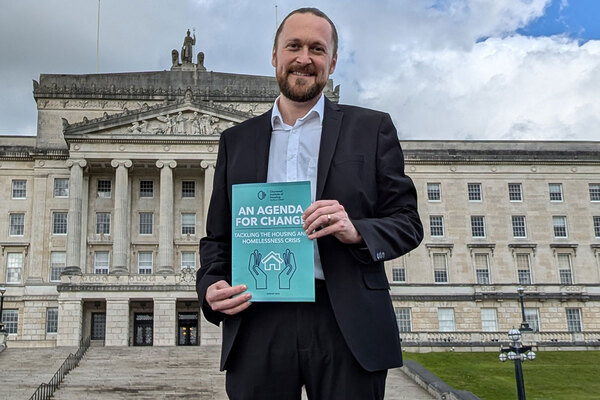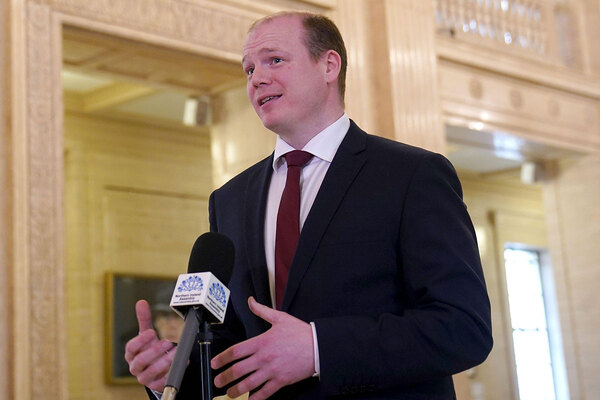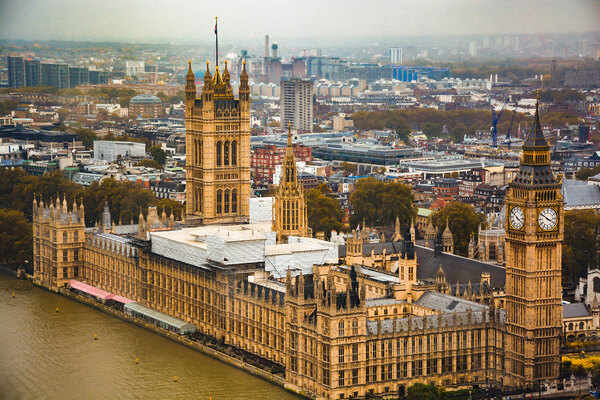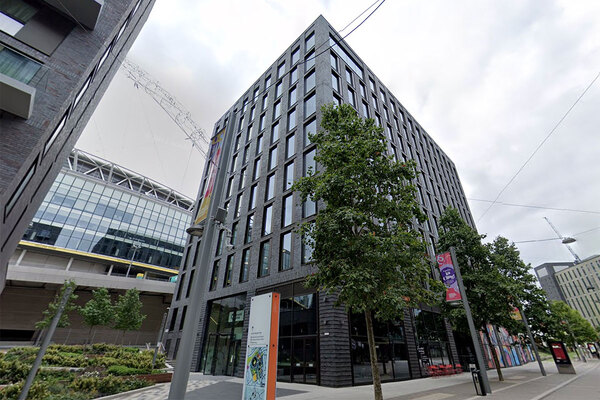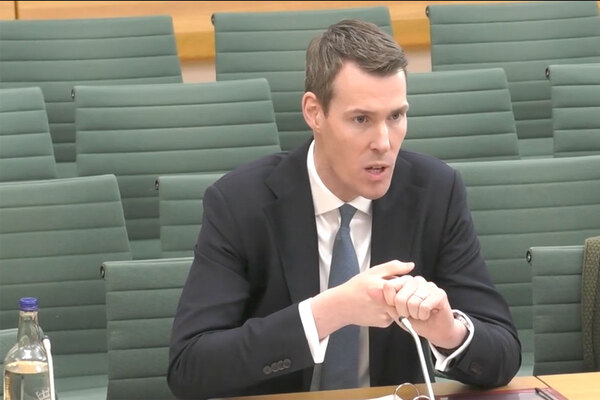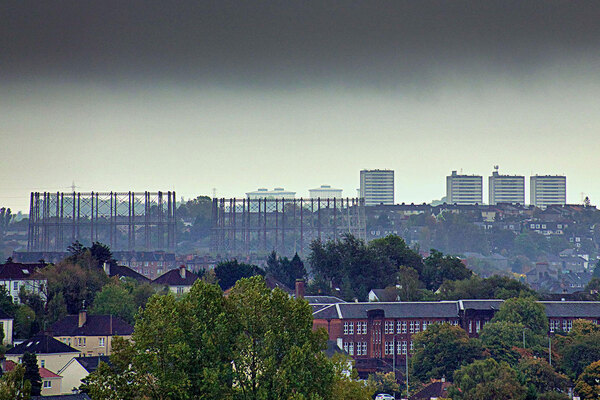Housing bodies welcome Programme for Government in Northern Ireland but warn affordable homes must be funded
Housing bodies in Northern Ireland have welcomed the Executive’s draft Programme for Government but have warned that adequate funding must be available to deliver enough social and affordable homes.

The Chartered Institute of Housing (CIH) and Homeless Connect said that prioritising housing with plans for delivering and retrofitting homes, as well as preventing homelessness, are “positive”. But they said the success of the proposals will depend on the funding allocated to them.
The Northern Ireland Federation of Housing Associations (NIFHA) called for a “lot more detail” on the plans.
The Northern Ireland Executive launched a consultation on its draft Programme for Government (PfG) this week, which made housing one of its nine priorities following years of campaigning by housing bodies in the country.
The draft PfG sets out the government’s plans and ambitions in several core areas as well as nine priorities, one of which is now providing “more social, affordable and sustainable housing”.
According to the 88-page document, good housing is “essential to our health and well-being”.
It highlights that there are more than 47,000 households on the housing waiting list, including 35,000 experiencing housing stress.
Alongside this, it said: “The Executive has not been able to deliver on its ambition of 2,500 new social homes a year, and we therefore want to commit to the long-term public subsidy required to deliver more social homes, while at the same time innovating to develop new funding models for the delivery of more affordable homes to make this achievable.”
The PfG outlines the government’s plans to address the crisis, including ensuring that the planning system supports the delivery of the “appropriate” supply of housing, creating “sustainable and inclusive spaces”, and working with Northern Ireland Water to help facilitate housing growth.
The Executive pledged to deliver a Northern Ireland Housing Supply Strategy to provide a long-term framework for the policies and actions required to increase the supply of homes across all tenures and reduce housing stress.
In a significant move for the Northern Ireland Housing Executive (NIHE), the Executive is “seeking Treasury agreement for appropriate treatment of borrowing to enable” NIHE to “increase investment in its homes, improve energy efficiency and contribute to new supply”.
The constraints on the Housing Executive’s ability to borrow are a long-standing issue.
According to the document, the Executive will focus on preventing homelessness, “making it brief, rare and non-recurrent” by working collaboratively, prioritising housing solutions for those most in need and “developing innovative funding models with third sector partners to purchase homes”.
It said: “One such initiative is the Department for Communities (DfC), through the NIHE, working with DoH and the Department of Justice, to embed permanent systems change to prevent homelessness among young people coming out of care.
“In doing so, we will bring forward a pilot programme that will support young people leaving care and help to prevent this group from the risk of homelessness.”
The government has pledged to prioritise housing support for vulnerable people through the Housing Executive’s three-year Supporting People strategy.
It also pledged to continue its reform of the private rented sector and facilitate the retrofitting of existing housing stock “through sustainable funding and partnership models to help meet the net zero 2050 target”.
Its proposed domestic retrofit programme aims to address fuel poverty, decarbonise homes, reduce emissions and support green jobs for economic growth.
Responding to the PfG, Justin Cartwright, national director of CIH Northern Ireland, said: “We welcome the housing measures outlined in the draft programme for government as a positive starting point to provide the homes people across Northern Ireland need.
“Proposals such as enabling the Housing Executive to borrow, addressing water infrastructure capacity issues, and advancing the housing supply strategy – with ambitious targets for new homes – are essential steps forward.
“The commitment to reform the private rented sector and retrofit homes for net zero emissions is also encouraging.”
However, he said much of the success of the proposals “will depend on the forthcoming departmental plans and the funding allocated to them”.
The DfC’s capital budget, which covers housing, was cut by 38% this year.
Mr Cartwright added: “Multi-annual budgets will be essential to ensure long-term progress. If strategic funding decisions are indeed directed by the priorities set out in the PfG, this is a welcome approach.
“Nonetheless, structural reforms, such as those required for NI Water, remain necessary to fully support these ambitions.”
Seamus Leheny, chief executive of NIFHA, said it is “welcome” that the Executive has made housing a priority in the draft PfG and “recognised the importance of addressing the crisis facing housing”.
“We have been calling for this for some time, but having housing as a priority is only the starting point,” he said.
Mr Leheny added: “The actions on reform of planning and the development of a new housing supply strategy are welcome, but we do need to see how quickly they can be moved forward, with real targets set so we can see exactly how this can have immediate impact.
“We do not have the luxury of waiting when we have a growing housing waiting list, with investments in housing new build being cut.”
He said it is “important” that the Executive has made a commitment in the Supporting People programme, “which is a vital programme to support tenancies”.
But Mr Leheny said: “There is a lot more detail we would like to see on this, particularly how it will be measured year on year, and we hope the consultation process can bring this to the fore.
“We will be engaging with the minister for communities and the wider Northern Ireland Executive to see how they propose to take these actions forward.”
Nicola McCrudden, chief executive of Homeless Connect, said that the charity is “pleased that housing has rightly been included as a top priority for government”.
“Homeless Connect and our partners in housing have been pressing for this for many years,” she said.
Ms McCrudden added that it is “crucial” that the Executive delivers increased supply of social and affordable housing given the numbers of households experiencing homelessness.
She said: “This priority must be accompanied by sufficient resources if it is to make a real impact. The budget put forward for 2024-25 will only allow the Department for Communities to fund up to 600 new social housing starts this year against a target of 2,000. This needs to be reconsidered in the months ahead.”
Speaking as the consultation was launched, first minister Michelle O’Neill said: “From cutting hospital waiting times, delivering affordable childcare, to providing more affordable housing, we are taking action to ensure our communities have access to the life opportunities they deserve.
“We must invest in and improve our public services, protect our environment, create jobs and grow a sustainable economy that works for everyone.
“This is an ambitious plan which is set against [a] very challenging financial backdrop. But this is a mandate for delivery, and the Programme for Government gives everyone hope for a better future.
“That is why it is vital we hear your voices on the issues that are important to the public. Together, we can prioritise the issues that matter most and make this an even better place, now and for generations to come.”
Emma Little-Pengelly, deputy first minister, said: “Everyone recognises that we are working to a very tight budget in a shorter-than-normal mandate.
“But we can still improve lives in a meaningful way by focusing on a small number of priorities that will make a real difference.
“Over the course of the next eight weeks, we intend on engaging with as many people as possible, so they can help shape this plan and ensure we deliver on the issues which matter most.”
Last month, CIH Northern Ireland launched an “urgent” call to action in a new report aimed at tackling the housing and homelessness crisis through a series of priorities.
This included a need to accelerate Northern Ireland’s progress towards net zero housing, secure sustainable capital financing for housing development, and address infrastructure challenges that “threaten future housing growth”.
Sign up for our Northern Ireland bulletin
Already have an account? Click here to manage your newsletters
